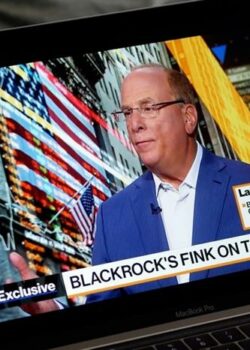High society
Some people measure their status by the good they do in the world. Others may focus on money, a cabin in Klosters or a Lamborghini. So how about a corporate jet?
Yes, despite the damage aviation fuel does to the environment and the difficulty finding a parking space at Davos, the executive jet remains the perk that puts a smile on the face of a certain kind of CEO.
The FT reports data from ISS Corporate Solutions revealing that spending on jets among S&P 500 companies increased to $41.3m in 2022, up 22% on the previous year.
Mark Zuckerberg alone spent $2.3m on private flights. Though that was not as steep as the high altitude cost of Sheryl Sandberg’s jetting around: $4m.
The FT quotes Matteo Tonello, managing director at The Conference Board, saying: “With a growing debate about inequality, it can be a problem for a company if its leaders are displaying publicly their privilege.”
Rising consumer prices are always easier to digest when CEOs are zipping around the skies in a jet.
A tale of two Cities
Not everyone is impressed by the Financial Conduct Authority’s (FCA) proposal for making London a more attractive place to list your company.
A quick recap: the FCA is proposing to pull in the punters by subbing in a single listing category for the “premium” and main board categories, and easing the regulations for dual-class shares, which were waved through back in 2021.
Cambridge prof Bobby Reddy has already claimed some of the FCA proposals won’t fly.
Now pension funds, including Railpen and the Church of England Pensions Board, have written a letter to the FCA, requesting a pause on the reforms because they make listing in London less attractive. IPE.com, a website for pension funds, writes: “The letter added that diluting shareholder rights meant that investors would find it more challenging to act as effective stewards of their assets.”
Change may be more difficult than the FCA first thought.
Land of opportunity?
A little less than half, 45%, of global board directors, say they need more insight into how their “sustainability goals” link to corporate strategy.
So says new research from boardroom software purveyor Diligent, and corporate headhunters, Spencer Stuart.
A fifth of directors report a lack of clarity about what ESG means for their businesses. Only 2% say the ESG backlash is their main issue.
Meanwhile, European boards are ahead of their US counterparts, with 63% reporting that they consider ESG goals and strategies every quarter, compared with 44% stateside. When it comes to ESG producing results, 34% of EU boards said it did, while only 15% of US boards could say the same. In the US, only a quarter of firms could say they had effective leadership of environmental and social issues, much fewer than the 50% in Europe.
ESG has got a long way to go.
Hauled before the judge
Both PwC and KPMG were this week punished by regulators to the tune of millions for their less than adequate work auditing the truck spotter’s once favourite haulage company, Eddit Stobart.
KPMG were fined £1.35m (reduced to £877, 500 for early payment and admissions) for audit work in the year ending November 2017. Former audit partner Nicola Quayle was fined £70,000 (reduced to £45,500).
The Financial Reporting Council’s executive counsel Claudia Mortimore said there were “serious failing” in the audit work, though were not “pervasive” throughout the audit.
KPMG resigned the audit over disagreement with Eddie Stobart management centred on obtaining audit evidence.
However, PwC took on the audit for the following year, ending November 2018, only for their work to also fall short including a failure to spot that revenue recognition on property transactions by the logistics company were a “significant risk of material statements”, and a lack of challenge for management’s chosen accounting policy, among others.
The firm was fined £3.5m (reduced to £1.9m for its cooperation) while audit partner Philip Storer was fined £90,000 (reduced to £51,000.
Mortimore said: “There were numerous, serious and pervasive failing in this audit.”
Eddie Stobart went into administration in 2019 and its assets sold to Dutch haulier Culina Group. The distinctive Eddie Stobart trucks have since disappeared from UK roads.
Stubborn as a Musk
“The influence that ‘superstar’ CEOs have over a company’s board of directors can be alarming.” So starts an article by US profs Angela Aneiros and Karen Woody. And, speaking as a veteran observer of the follies and foul-ups of various corporate leaders over the past way-too-many years, Board Agenda can only agree.
For Woody and Aneiros, however, the whole issue of rogue CEOs raises big questions for directors’ and officers’ insurance. And none more so than Elon Musk as he leads Tesla.
In 2020, Tesla refused to renew its D&O insurance (because of “disproportionately high premiums”) and, instead, Musk insured the board himself.
After detailing the whole story and all the governance nightmares likely to follow such a decision, the Woody and Aneiros conclude: “D&O insurance belongs with independent D&O insurance firms, so as to allow a divide among the board members and a CEO, and reduce the risk of a captured board.
“The consequences of ignoring those risks are dire for both the firm and for the individual board members.” (Shocked emoji here please, sub-editors—Ed.)





